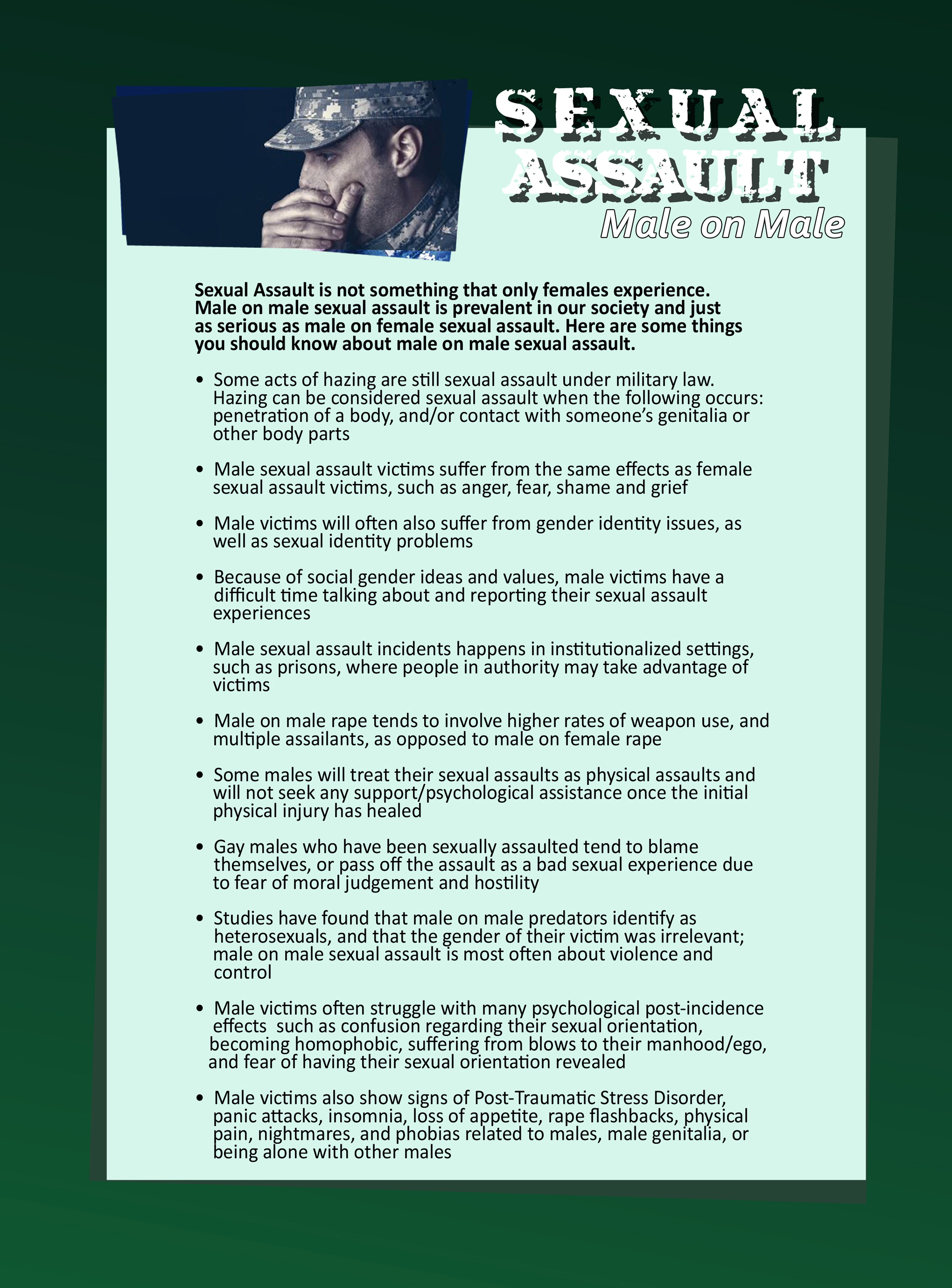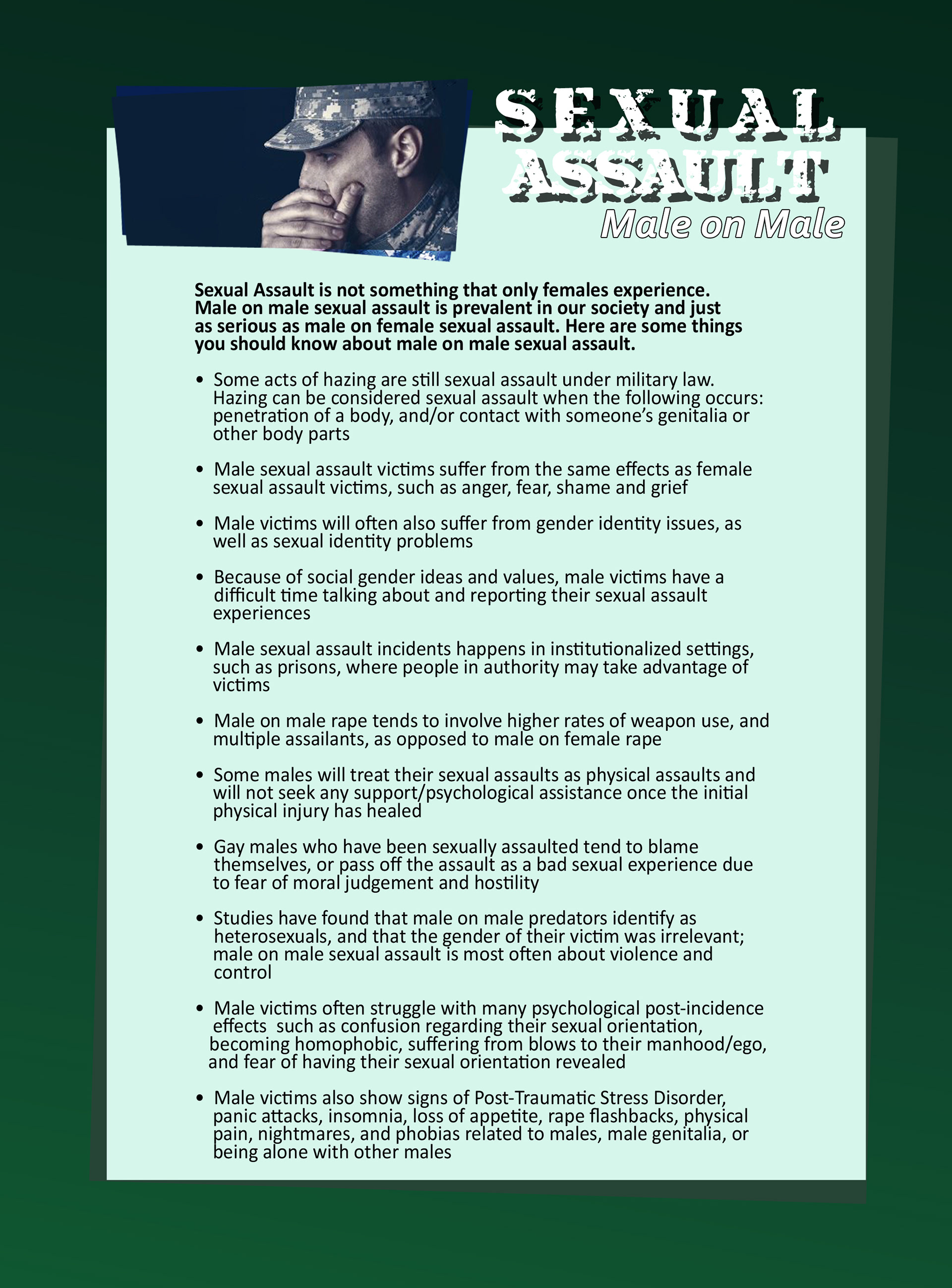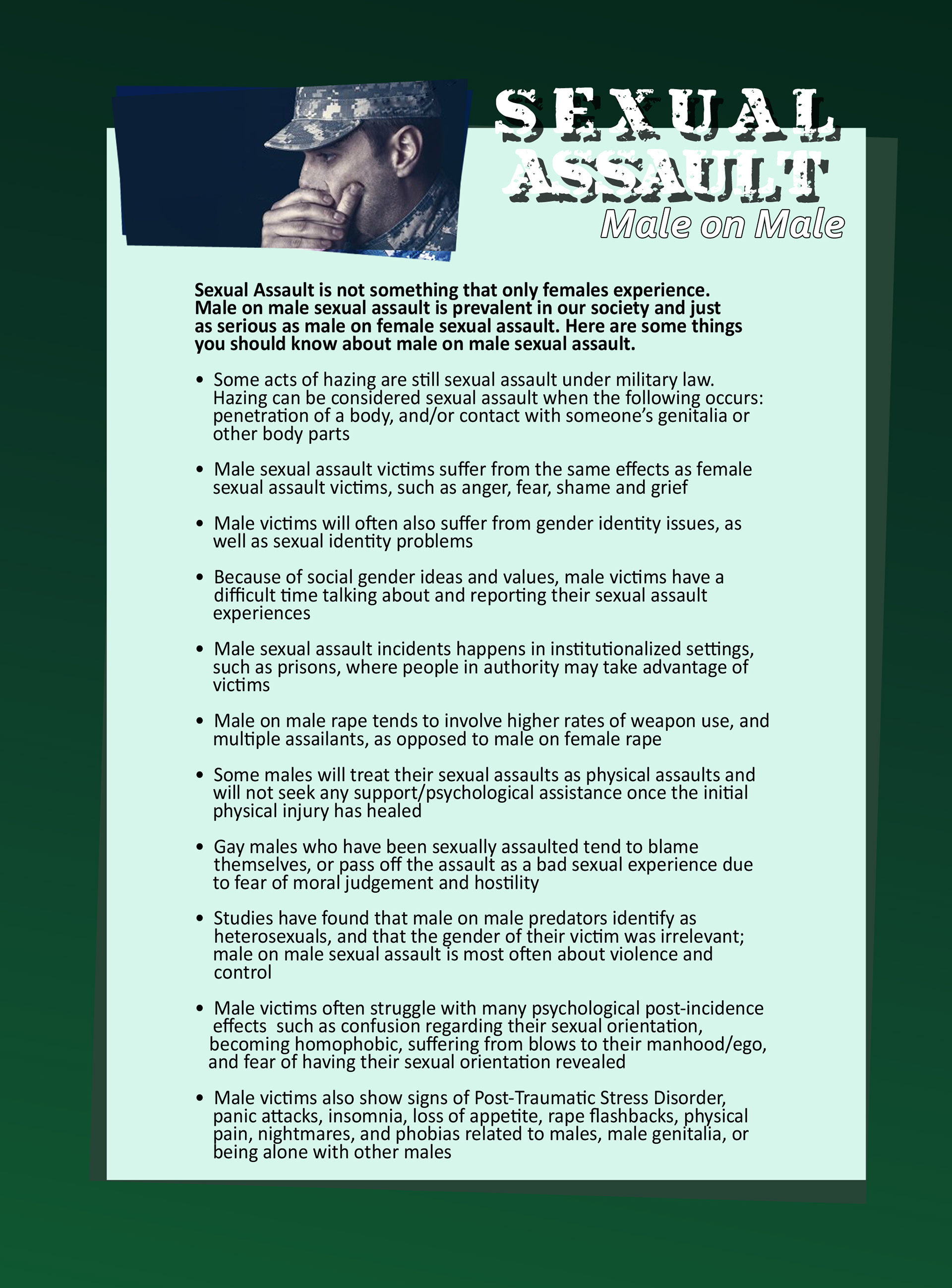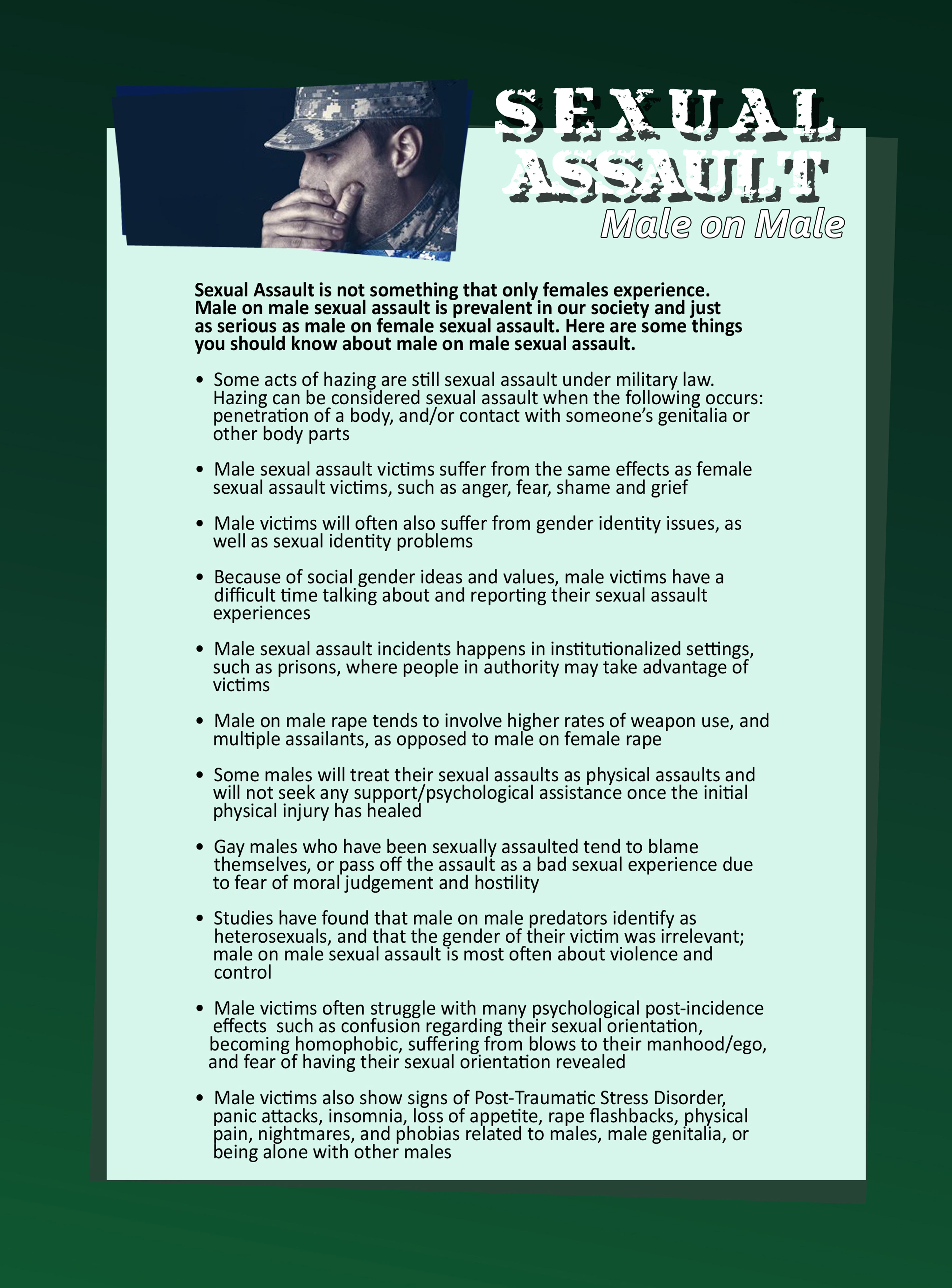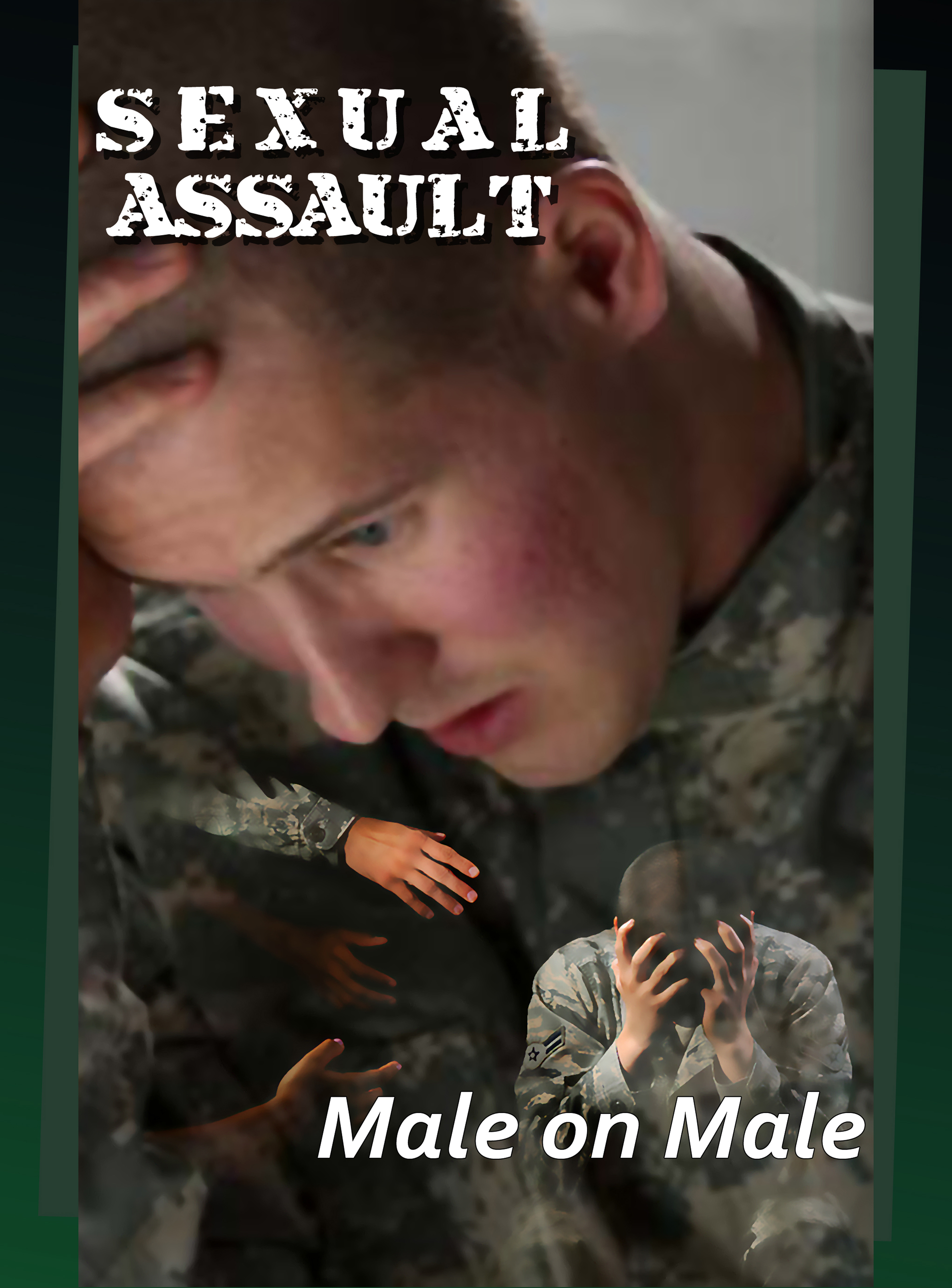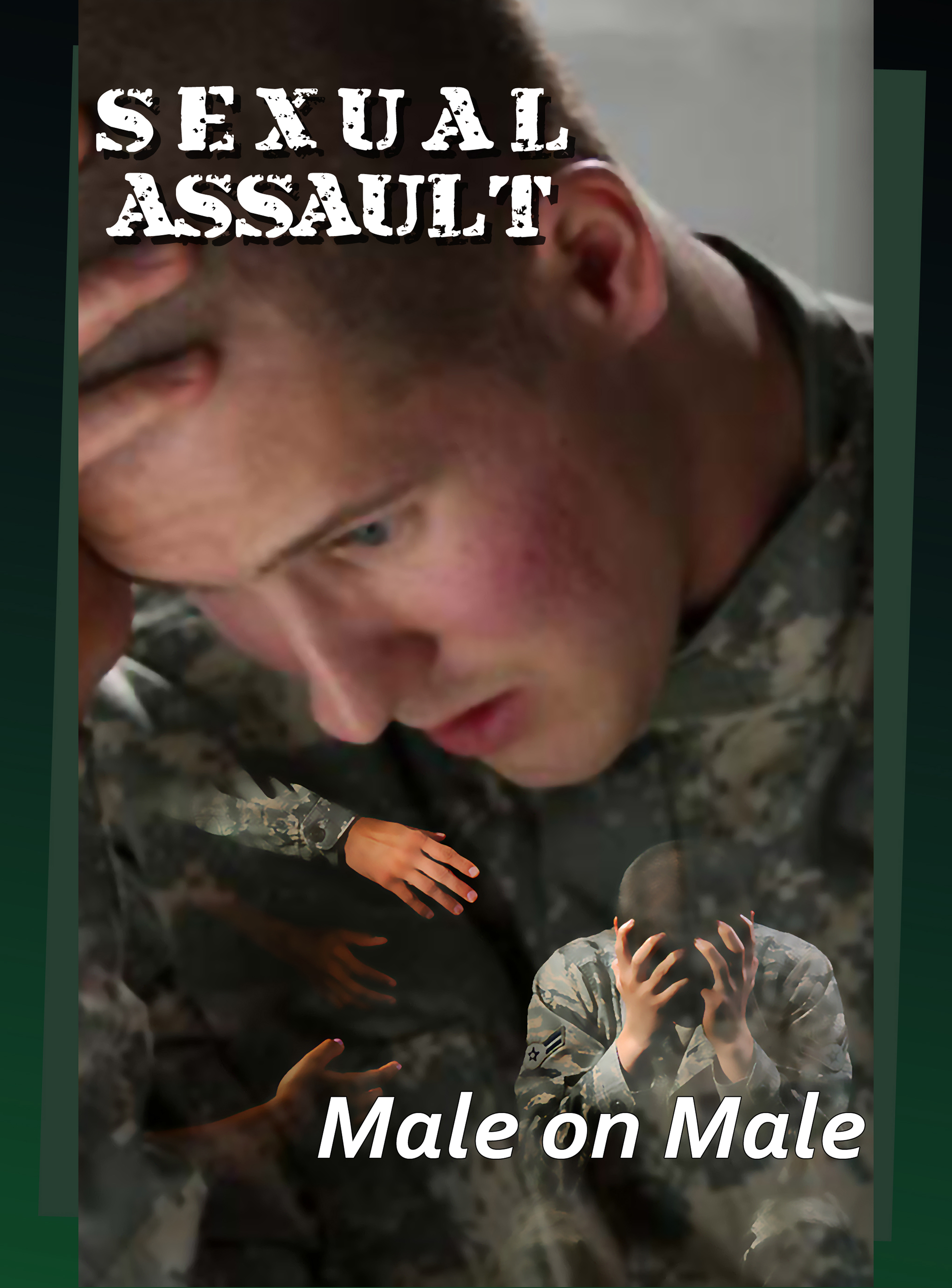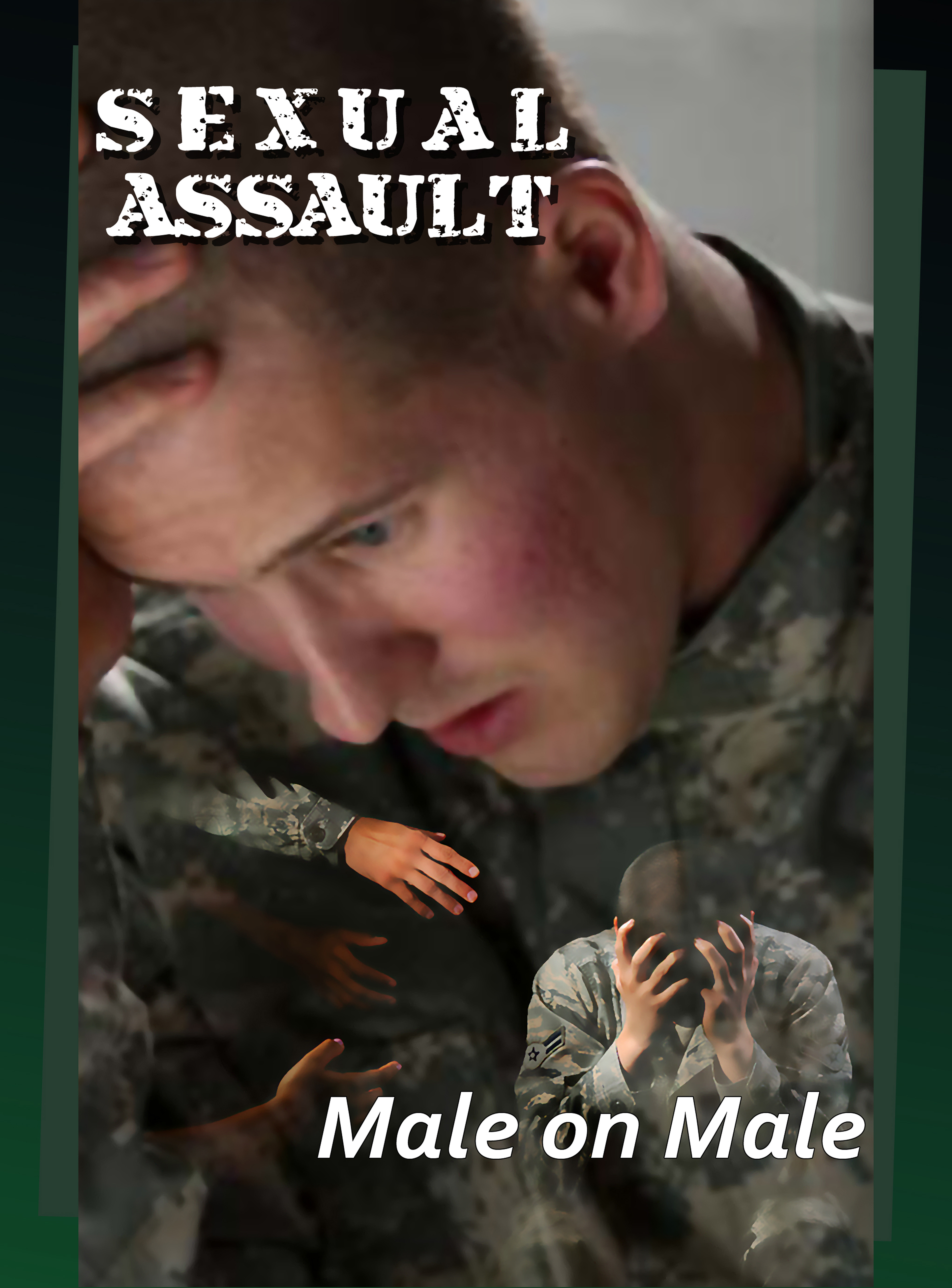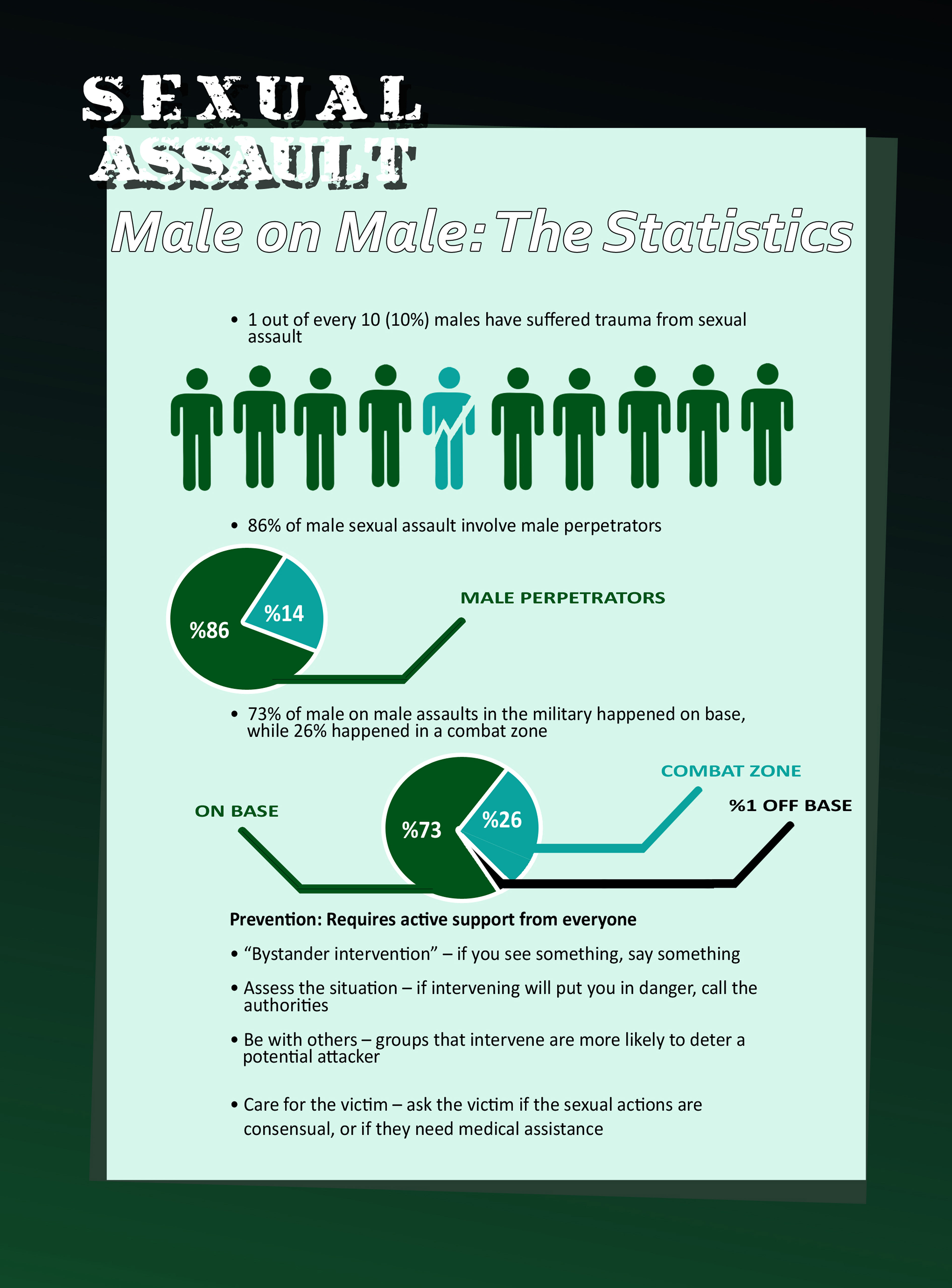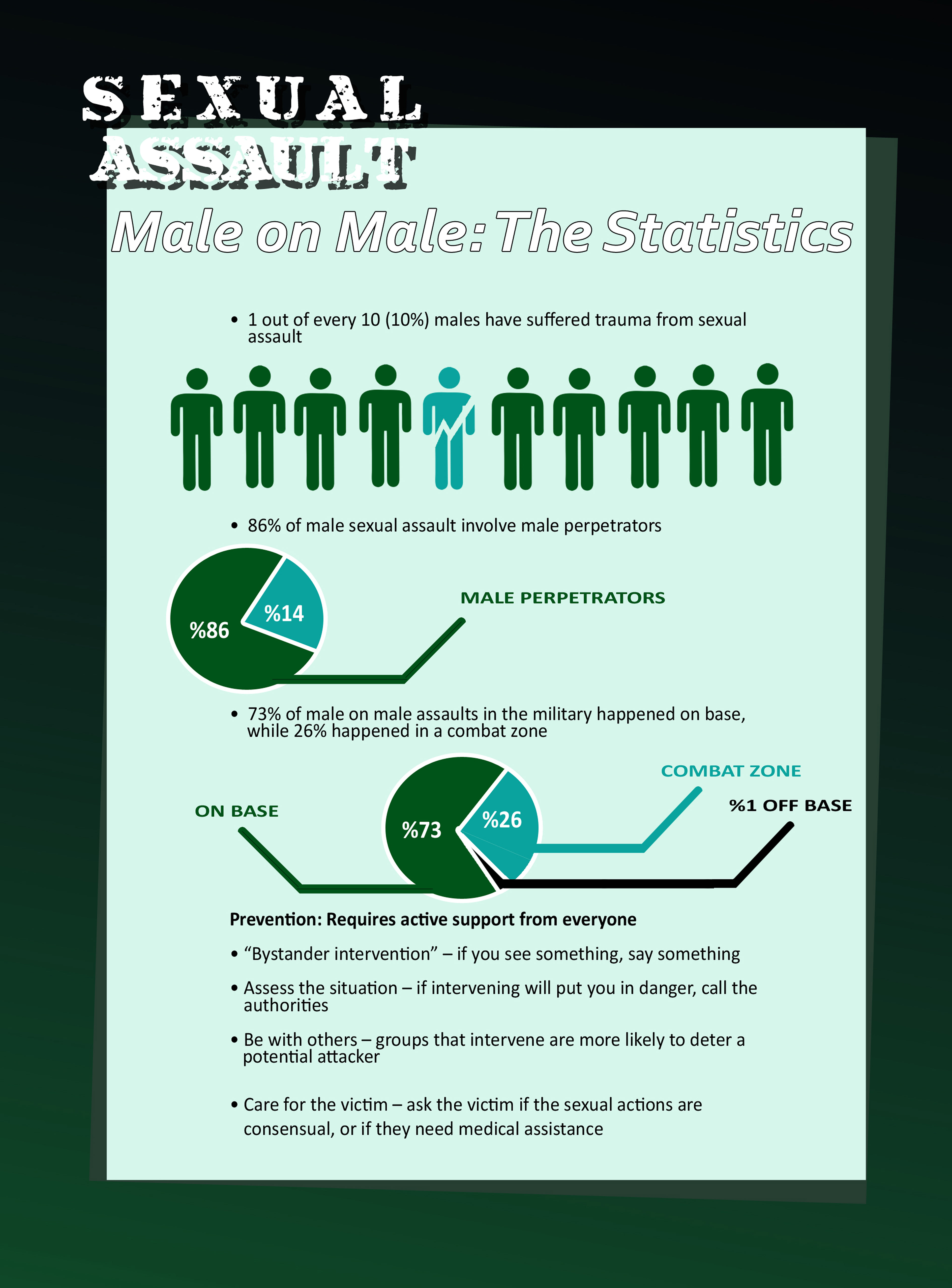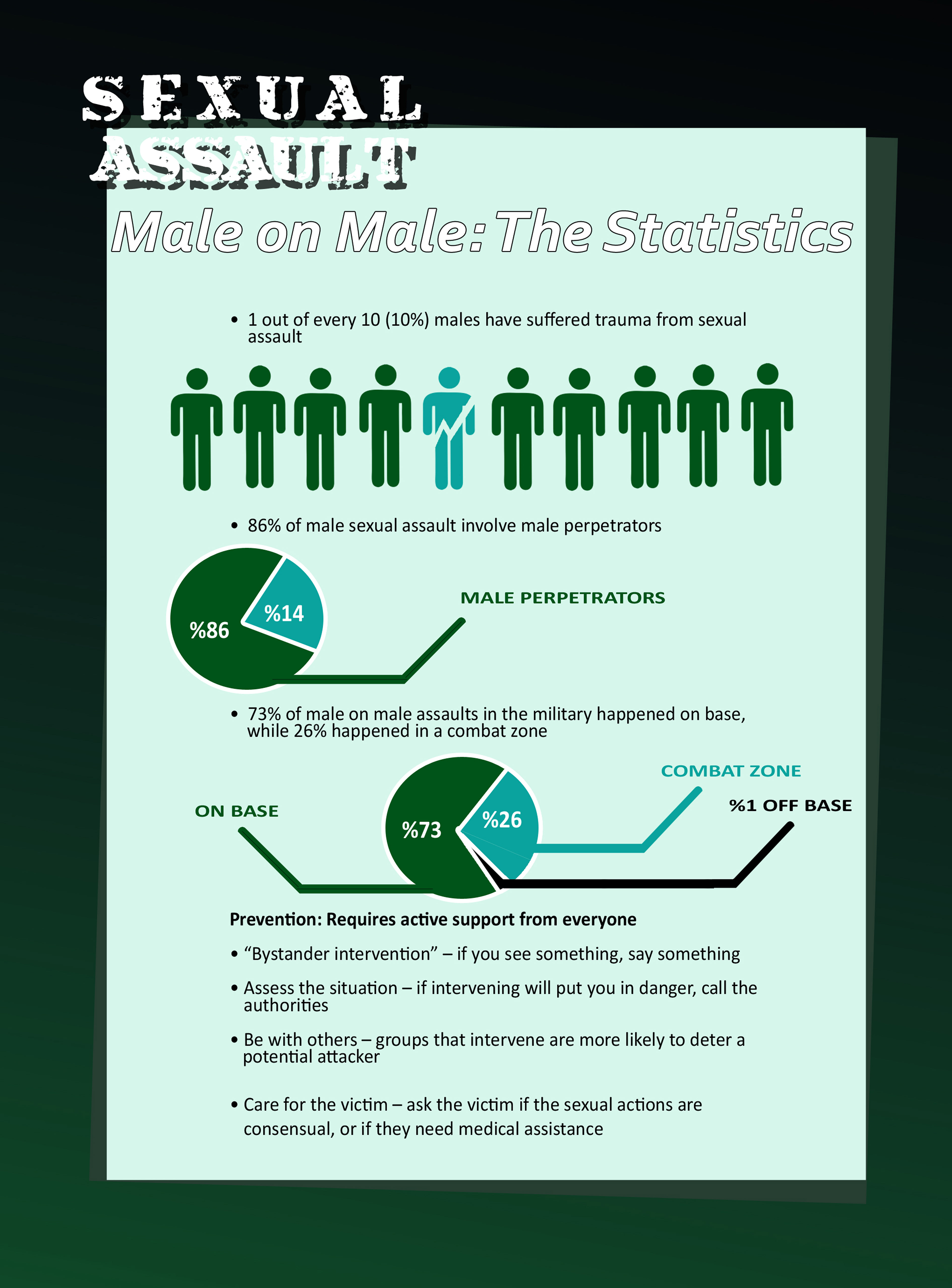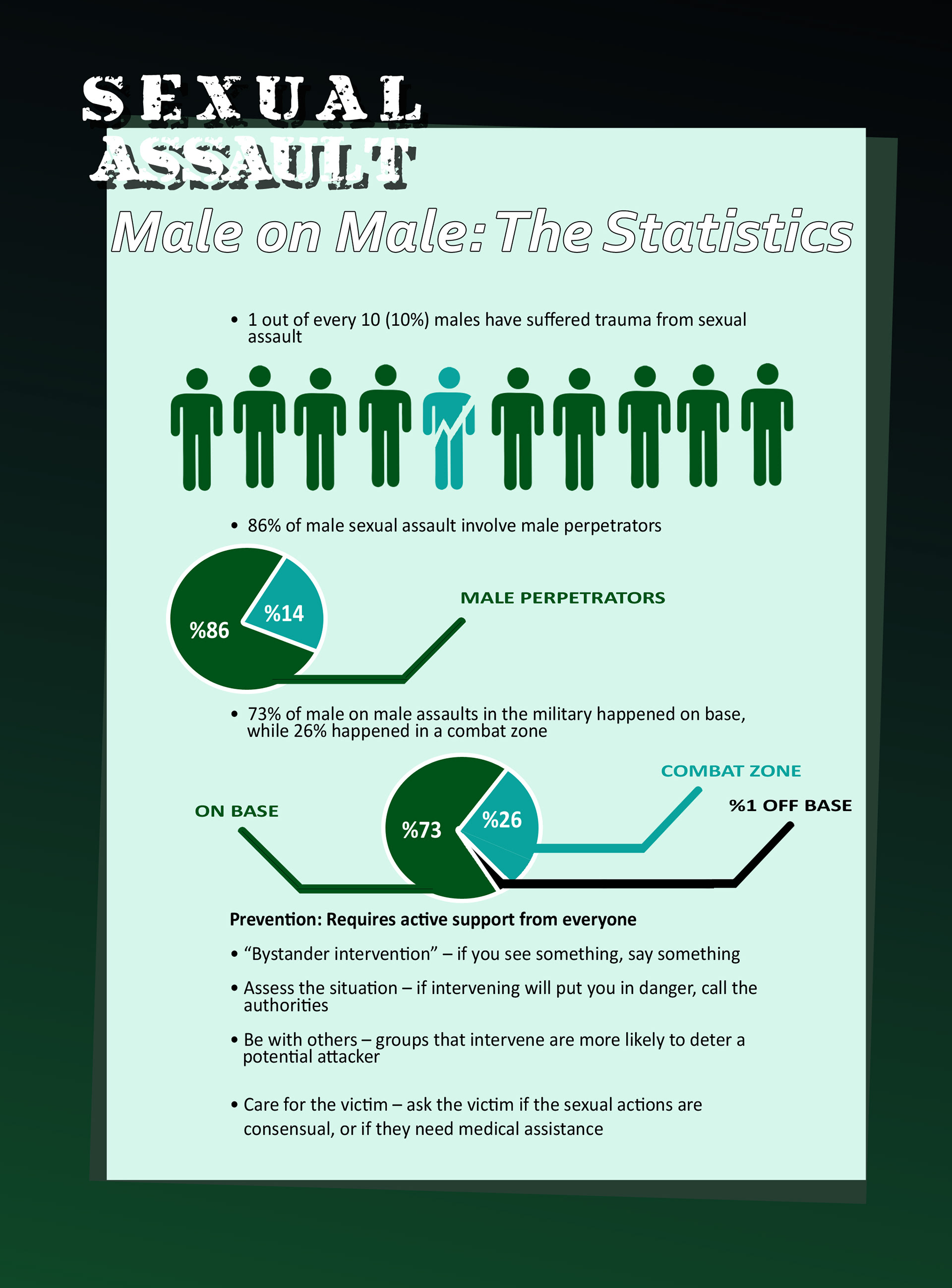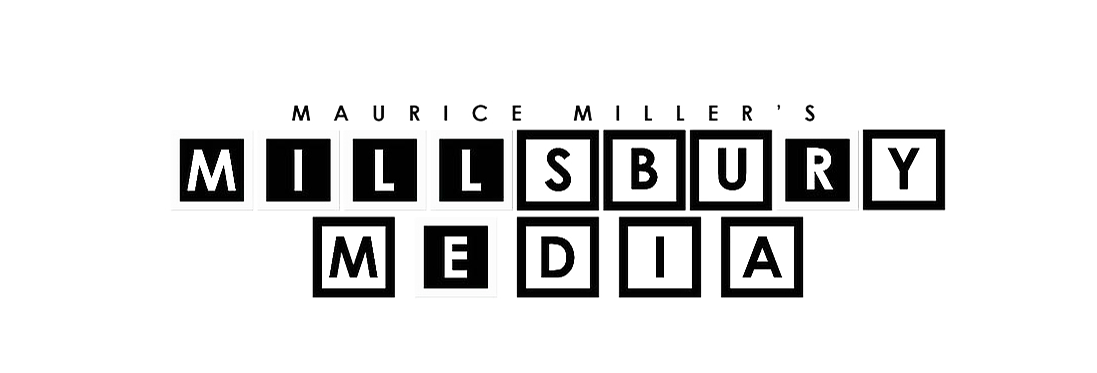LGBT Male On Male Sexual Assault in the Military and Armed Forces Campaigns
What is Male on Male Violence?
Violence against men consists of violent acts that are disproportionately or exclusively committed against men or boys. Men are overrepresented as both victims[1][2] and perpetrators of violence.[3][4] Sexual violence against men is treated differently than that committed against women in most societies and is largely unrecognized by international law.[5][6][7][8] Violence against men is committed by both males and females, but in the US, 65.3% of male homicides are committed by males.
While women are more fearful of violent crime, men are at much higher risk of being victims of violent crime.[9][10][11][12][13][14][15][16] This phenomenon is termed by researchers as the "fear of crime gender paradox".
Violence against men is committed by both males and females, but in the US, 65.3% of male homicides are committed by males.
...
Homicide:
...
Homicide:
Male offender/Male victim65.3%
Male offender/Female victim22.7%
Female offender/Male victim9.6%
Female offender/Female victim2.4%
What is Sexual Male on Male Violence?
Sexual assault of male adults
Sexual assault in institutional settings
Prison
1 in 4 New South Wales prisoners aged 18-25 years reported being sexually assaulted in prison. [xliii]
Queensland corrective service does not provide statistics of the number of sexual offences that occur in prison in its annual report.
Sexual assault in the military
2.1% of men in the United States Air Force reported some form of sexual assault in the previous 12 months [xliv] and 7% of men reported male to male sexual assault in the United States Department of Defense [xlv].
Sexual assault in war zones
There has been a 16% increase in reporting sexual assault in Afghanistan and Iraq according to United States Statistics. [xlv]
Sexual assault of gay, bisexual and transgender individuals
Approximately 50% of transgendered individuals report unwanted sexual activity within their lifetime. [xlvii]
In the Australian Private Lives survey: [xlviii]
19.6% of gay identifying men reported being forced to have sex by their partner.
14.3% of transgender males reported being forced to have sex by their partner.
25% of intersex males reported being forced to have sex by their partner.
Disclosure
Under-reporting of child sexual abuse or sexual assault
One of the difficulties in establishing a picture of the extent and circumstances of childhood sexual abuse and male sexual assault is under-reporting. Males are particularly reluctant to report childhood sexual abuse as both a child and adult.
Evidence suggests that:
Boys are less likely than girls to disclose at the time the sexual abuse occurs. [xlix]
Between 70-90% of males who have been sexually abused report not telling anyone at the time. [l]
Males disclose being sexually abused in childhood on average 22 years after the assault – 10 years later than females. [li]
Men report first in depth discussion 28 years after the sexual abuse, and first helpful in depth discussion 30 years after the abuse. [lii]
Men are more likely than women to make selective disclosure, to a limited number of people. [liii]
Men are one and a half times less likely than women to report rape to police. [liv]
Barriers to disclosure
Stigma associated with being sexually abused. [lv]
Power exercised by those perpetrating abuse through threats, coercion, apportion of blame. [lv]
Silencing effects of fear, confusion and shame. [lv]
Dominant masculine stereotypes.
Ideas that men should be powerful, strong, able to protect themselves against overwhelming odds, be self reliant, not acknowledge weakness, or be unable to cope.
Homophobia, questioning of sexuality
Concern that he will be considered ‘homosexual’ or ‘gay’ and treated negatively.
Uncritical acceptance of the idea that males who have been sexually victimised ‘automatically’ go on to perpetrate abuse. [lviii]
Research indicates that most males (95%) who have been sexually abused in childhood do not commit offences. [lix]
Concern they will be treated differently as males and may receive a limited or inadequate response. [lx]
Sexual abuse remains in some cultures a taboo or something shameful that should be hushed up. [lxi]
